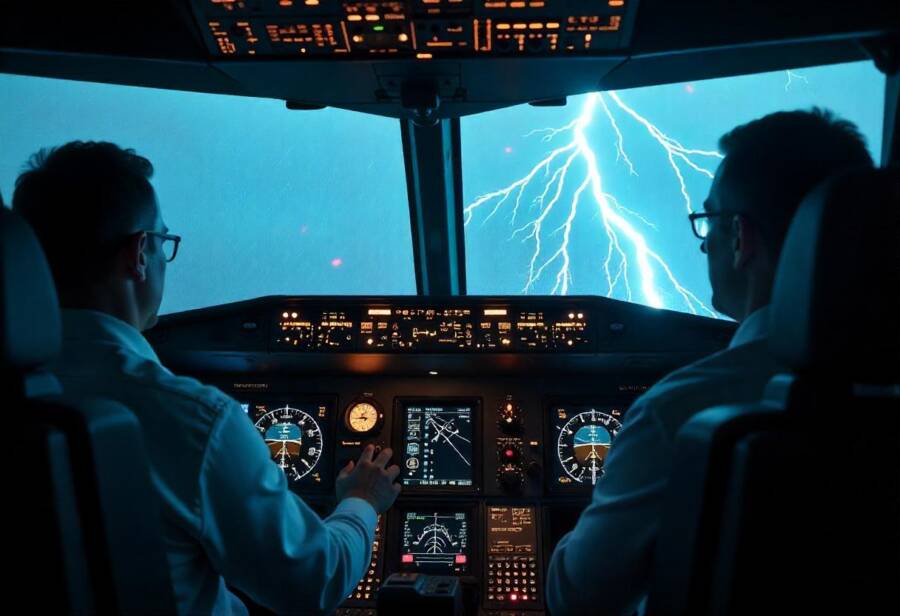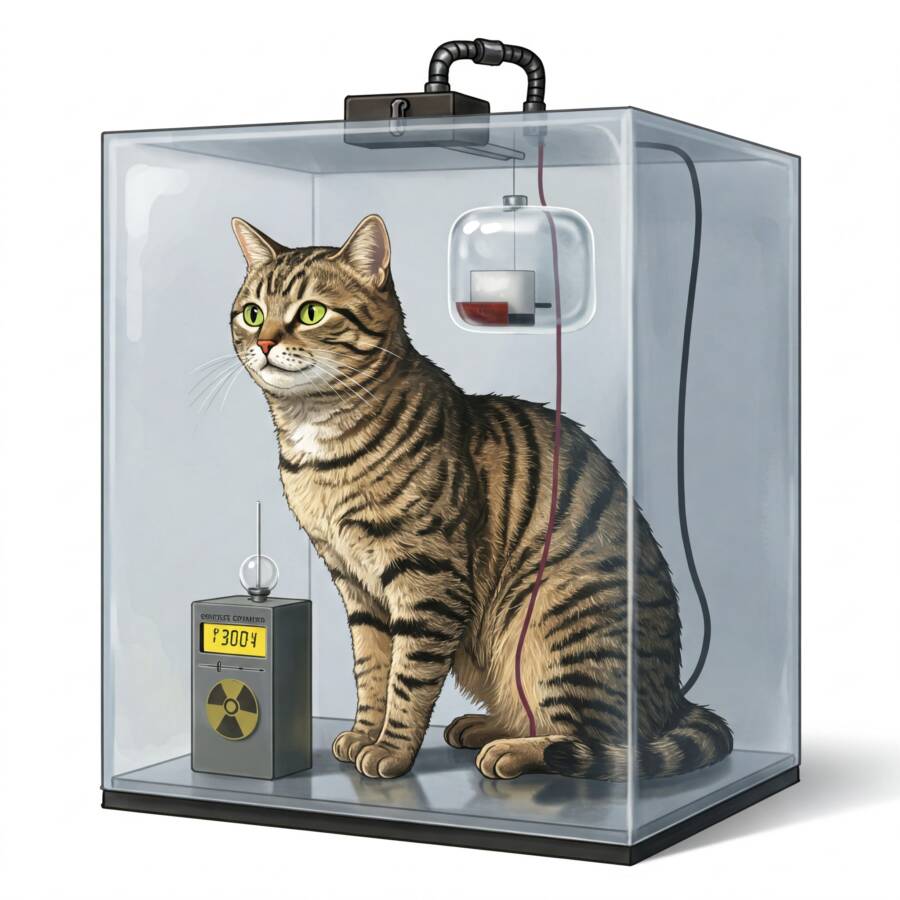Is it possible to live through the immediate effects of a nuclear bomb explosion? Will you die right away, or will your demise be painful and slow? This may sound a bit morbid, but knowing what will happen if a nuclear bomb hits, how it will affect your body, and how to protect yourself are all vital pieces of information that could save your life if you’re unlucky enough to experience an atomic blast.
Many factors determine how a nuclear explosion would affect you. The size of the bomb, the geographical layout of where it hits, whether the bomb explodes on the ground or in the air, how far away you are from ground zero, and what types of materials and buildings are nearby all play into how an atomic attack could affect you.
So, if you’re interested in reading more, here’s what happens to your body after a nuclear bomb hits!
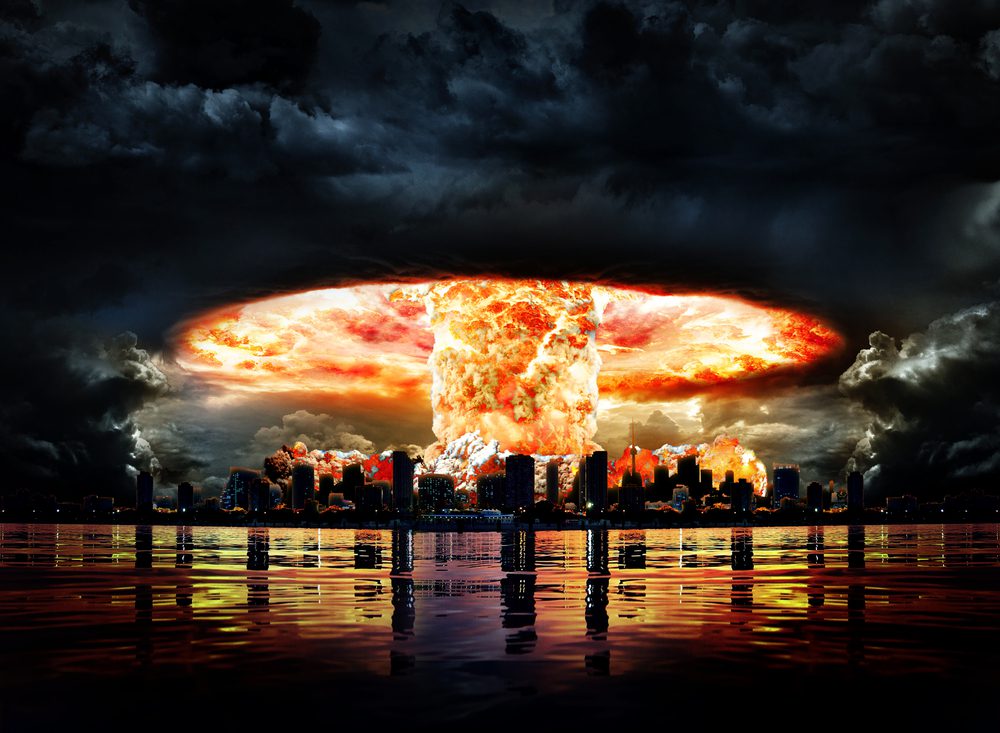
1. If you’re at ground zero, the explosion will obliterate you
This is one of the worst-case scenarios: anyone at ground zero, which is the point immediately below or above detonation, is unlikely to survive if a nuclear bomb hits. According to experts, the only people who would survive a nuclear attack at such close range are those who happen to be in an underground bunker or fortified building.
If you’re not lucky enough to be in one of those sheltered spaces and are still within a few-mile radius of the atomic bomb, your body will be instantly reduced to its basic minerals due to the heat of the blast. Just to give you an idea, the heat can reach up to about 540,000 degrees Fahrenheit—300 times hotter than the temperature used in cremating a person’s body.
The only good thing is that everything will occur so fast that you won’t see it coming. The only thing that will be left where you stood will be a crater from the nuclear attacks or a nuclear shadow like those in Hiroshima. By the way, here’s a book you may want to read if you want to know more about the Hiroshima nuclear explosion.
2. The wind can kill you
If you’re within a half-mile of the blast and somehow survive after the nuclear bomb hits, which implies shockwaves, thermonuclear radiation, and ultraviolet light, you’re still not safe. Winds from the explosion can go for over 400 miles per hour—almost double the speed of a Category 5 hurricane.
While the human body may be able to withstand this force, it cannot make it through if large flying debris hits at this speed. In fact, this wind speed is enough to bring down most structures and buildings, so even if you’re indoors and protected from the initial radiation, it may not matter—the place where you’re at could crush you as it collapses.
Moreover, the shockwaves that come after a nuclear bomb hits will cause a change in air pressure. So, even if the wind doesn’t knock down the building you’re in, this change can destroy it. Everything will be so sudden that even strong structures frequently cannot withstand the explosion.
3. You can burn to death if you are within a 3-mile radius
Those closest to the place where a nuclear bomb hits will be the most affected. These people will most likely be burned alive on the spot, with no chance of having anything left of them. But what happens to those that aren’t instantly incinerated?
Thermal radiation goes out in a pulse, and it’s so intense it can scorch human skin and ignite widespread fires. On the inside, things get terribly heated, too. Your eardrums may rupture, like your lungs, and you may experience internal bleeding from the force of the explosion.
You could die from organ damage or asphyxiation. All of this occurs within a 30-mile radius of the explosion in about 10 seconds.
This may sound like a horror movie, but it can happen if a nuclear bomb hits.
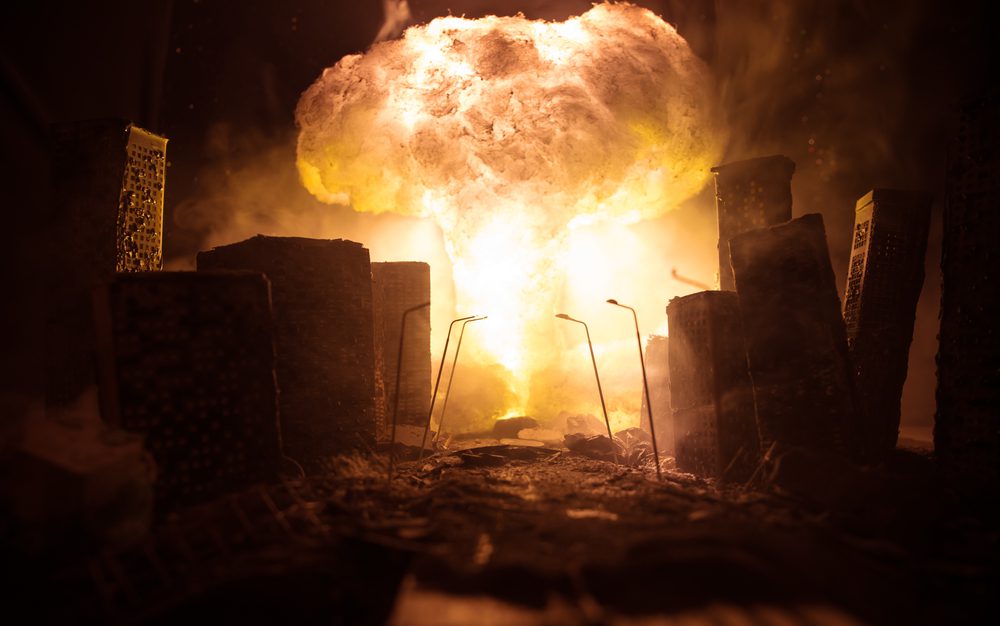
4. You can experience lethal burns within a 5-mile radius
If a 1-megaton nuclear bomb hits, it can cause first-degree burns, which are similar to bad sunburns. This can happen to those who are about 7 miles away from the explosion point. If you are within 6 miles of the blast, those burns become second-degree.
Full-thickness burns, or third-degree burns, can happen within 5 miles of the explosion. This type of burn damage occurs when all three layers of your skin are burned, but sometimes it can even damage bones and muscles. If 25% of your body is covered in third-degree burns, it can be lethal.
Light can cause burns in some cases, too. If you’re close enough to the explosion, the intensity of the light can cause all three types of burns. According to doctors, second-degree burns, though not as dangerous as third-degree ones, can still cause death.
If you get them on more than 30% of your body, you can go into shock, which can end up killing you quickly if you don’t receive medical assistance.
Keep reading to find out other things that happen to your body after a nuclear bomb hits!
5. You can permanently lose hearing within a 5-mile radius
Even though journalist John Hersey described an atomic bomb explosion as a “noiseless flash,” the air blast can be so loud that it can cause deafness. Since light travels faster than sound, you can easily get flash-blind if you’re within a 5-mile radius before your hearing is impaired.
At this distance, when a nuclear bomb hits, the explosion area pressure is 5 pounds per square inch—enough for your eardrums to rupture, which can lead to infection and even deafness.
Moreover, if you’re farther than 5 miles from where a nuclear bomb hits, your hearing could still be affected. According to experts, you could get tinnitus, which happens when you experience ringing in your ears. Research shows people who suffer hearing impairment from even small explosions can experience hearing issues for years, if not life.
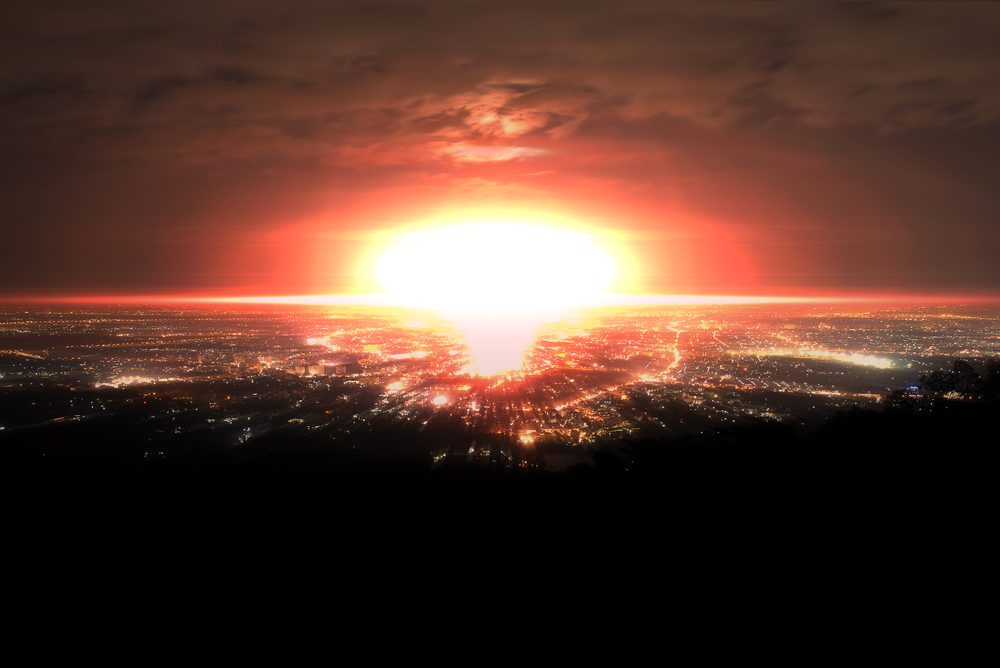
6. Flash blindness can cause damage up to 52 miles away
The most horrible things that occur after a nuclear bomb hits happen within a 10-mile radius of the explosion site, but that doesn’t mean that everyone outside this area comes out unscathed. In fact, temporary flash blindness can occur for those up to 52 miles away from the blast site.
While the condition can go away on its own in a few minutes, the dangerous thing about flash blindness is that it doesn’t only happen to people in their houses or sitting comfortably. In fact, anyone who looks directly at the explosion while driving a car will be unable to see it, meaning many drivers could be causing serious damage to themselves and others.
If a nuclear bomb hits and you’re closer to the explosions and look directly into the blast, the flash can focus through your eyes’ lenses. This can cause your retinas to burn, resulting in a condition called photic retinopathy, which can permanently damage your eyesight.
7. The radiation could take weeks or even years to kill you
As you may already know, when a nuclear bomb hits, one of the biggest long-term effects is the radiation. Unfortunately, it’s not just that that settles during fallout. If you’re close to the initial explosion and make it through, it doesn’t mean you’re safe—chances are you’ve still been contaminated with radiation.
Radiation is a serious thing as it can cause changes in your DNA, and if you’re close to a nuclear explosion, the radiation levels can be lethal, damaging or killing your cells. It can also cause immediate burns and lead to cancer.
While burns may kill you in the short run, there are other health issues like cancer that can lead to a slow death. Sometimes, it may take several years or even decades to occur, and according to scientists, even small doses of radiation can be harmful.
So, now that you’ve learned what can happen to you if a nuclear bomb hits, you may also want to read 7 Body Parts Humans Don’t Actually Need…This Will Shock You!

